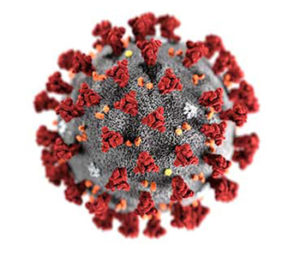
FRANKFORT, Ky. — The Supreme Court has provided additional guidance this week on how court matters are to be handled during the COVID-19 pandemic. The two orders, issued April 23 and April 24, are in effect through May 31, 2020.
Administrative Order 2020-28, dated April 24, 2020, replaces in its entirety Administrative Order 2020-22, dated April 14, 2020. This order remains in effect through May 31, 2020, and does the following:
- Clarifies that the suspension of evictions does not excuse an individual’s obligation to pay rent or comply with other obligations under tenancy.
- Advises attorneys, to the extent possible, to continue to prepare and litigate cases to minimize delay upon expiration of the order.
- Suspends grand jury proceedings through the expiration of the order.
- Suspends the 60-day period in RCr 5.22(3) from March 16, 2020, until the expiration of the order.
- Encourages judges to give priority in setting hearing and trial dates to cases where the defendant is in custody and proceedings have been suspended by the Supreme Court’s response to the COVID-19 emergency.
The Supreme Court also amended the emergency release schedule, which clarifies that the order applies only to new arrests and does not apply to drug court violations, probation violations, any violations of conditions of release, persistent felony offender charges or escape charges. Administrative Order 2020-27, dated April 23, 2020, replaces in its entirety Administrative Order 2020-25, dated April 14, 2020.
The Supreme Court originally issued the emergency release schedule and emergency pretrial drug testing standards April 14 to help protect the health and safety of its criminal justice partners and defendants housed in county jails. The emergency release schedule temporarily expands the current Administrative Release Program as follows:
- Defendants who are arrested for any nonviolent/nonsexual misdemeanor and/or Class D felony (including defendants arrested on an indictment warrant) and have not been assessed as a high risk for new criminal activity shall be released on recognizance.
- Defendants who are charged with any nonviolent/nonsexual Class D felony, are a high risk for failure to appear, or have previously failed to appear on any nonviolent/nonsexual misdemeanor or Class D felony shall be supervised by Pretrial Services.
- Defendants who are served with a warrant for nonpayment of court costs, fees or fines or with a warrant for failure to appear on a violation shall be cited and released and a show cause hearing shall be set after May 31, 2020.
- Defendants who are arrested for contempt of court on civil matters (excluding any violation of a protective order), nonpayment of child support or nonpayment of restitution shall be released on recognizance and a show cause hearing shall be set after May 31, 2020.
- Defendants not released under this schedule or under the current Administrative Release Program shall be reviewed by a judge within 12 hours of their arrest.




















Add Comment